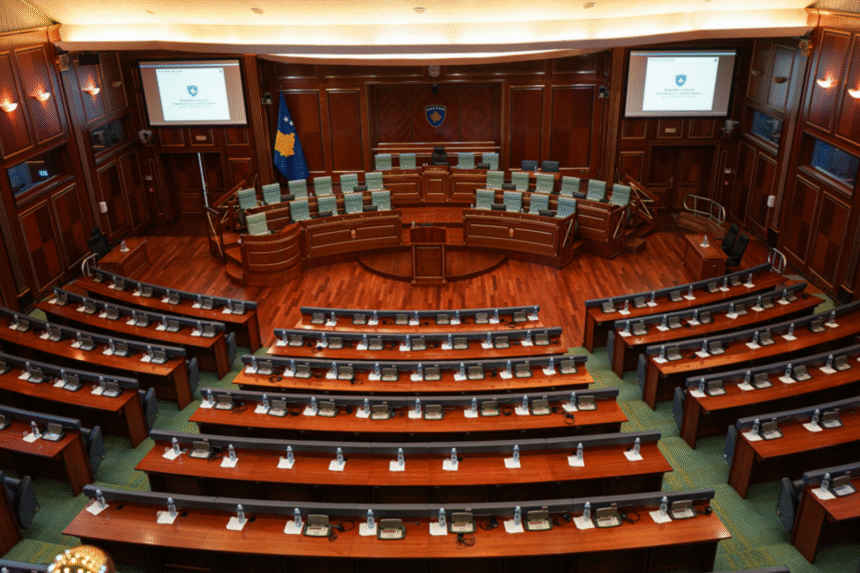Kosovo’s institutional crisis deepens as the country heads into its 23rd attempt to constitute the 9th legislature of the Assembly, with no resolution in sight more than six weeks after the initial session on April 15.
Despite the repeated efforts—now occurring every 48 hours—the process remains stalled. The ruling Vetëvendosje (VV) party has persisted in its push to amend the procedure for electing the Assembly Speaker, demanding a secret ballot, a proposal that continues to lack cross-party support.
Tensions are running high among political parties, with PDK, LDK, and AAK accusing VV and Prime Minister Albin Kurti of orchestrating a blockade by insisting on a candidate and voting format that lacks majority backing. VV’s candidate for Speaker, Albulena Haxhiu, has failed to surpass 57 votes, short of the required 61 for election.
Kurti, speaking earlier this week, accused the opposition of “unjustly sabotaging the formation of the legislature,” while also reaffirming his party’s stance on both their candidate and the voting method.
In the absence of a breakthrough, President Vjosa Osmani has warned she may refer the impasse to the Constitutional Court, citing the growing urgency to resolve the paralysis. She noted that party leaders raised no objections to this possibility during a recent joint meeting.
Kosovo held its parliamentary elections more than three months ago, with VV emerging as the leading party, followed by PDK, LDK, and AAK-NISMA. However, the failure to form a functioning Assembly continues to delay governance, legislation, and international engagement—raising concerns about the country’s democratic credibility and internal stability.







